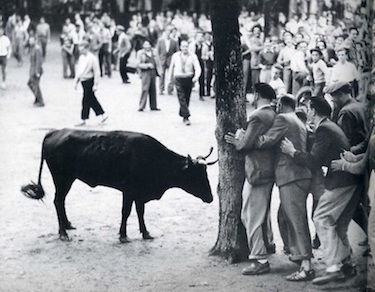 ***Updated: November 15, 2018***
***Updated: November 15, 2018***
After playing cards were introduced during the Middle Ages, it took years for them to become standardized. Eventually, most countries adopted the familiar 52-card deck with number values, Jacks, Queens and Kings. On the Iberian Peninsula however, Moorish knights occupying Spain at the time never liked 10s, so they simply removed them and enjoyed diversions featuring 48 cards.
This fact was nothing but a small historical footnote for centuries until the 1990s when some Nevada operators tried to liven up floors by dealing blackjack from this reduced deck. In a shoe of eight, this obviously removes 32 (possibly) beneficial outcomes for customers, consequently inflating House advantage to approximately 2%.
To balance this inequality out, different player-friendly rules were installed and Colorado-based Masque Publishing devised their version to begin licensing it to operators. Labelled as “Spanish 21“, it’s today’s standard 48 card variant celebrated on gaming floors throughout the world.
Rules
Make no mistake, during a round of Spanish 21, those missing 10s unleash a whole lot of havoc, hosts providing an enticing menu of auxiliary rules, bonuses, and side bets to compensate for their absence. Astonishingly, once everything is factored in, it reveals a reasonably profitable endeavor for participants.
For starters, if someone receives a terrible hand that isn’t likely to be successful, they can “surrender” it and retrieve half their risk amount. This was actually an Atlantic City invention and one of the best improvements, by far.
Furthermore, players may retreat from the felt battlefield with honor after doubling down and receiving an unhelpful outcome, a tactic only costing original antes. On this table it’s referred to as double-down rescue.
Exciting aspects of the game appear when a “21” is formed with more than two cards, infusing all sorts of spicy flavor. Rest assured, it’s an automatic winner as is customary, but it just might continue to reap rewards. It additionally endows 3:2 instead of even money if comprised of five cards, six returns 2:1, and seven delivers 3:1.
A few other special combinations enlarge chip stacks, as well. A 7/7/7 or 6/7/8 each issue 3:2 or if suited, 2:1. An extra cherry on the sundae materializes if the suit is spades, resulting in tripling of stakes.
Frequently, iGaming sites feature a unique prize for drawing suited 7/7/7 if facing a dealer 7 of any suit, a “Super Bonus“, usually $1,000. If seated at high roller tables and risking more than $25, jackpot amounts could swell to $5,000, hosts surprisingly throwing $50 to everyone seated as an “Envy Bonus“.
If liberal rules and supplementary revenues aren’t enough to persuade trying Spanish 21, side bets are also available before every round called Match the Dealer. If opting in and receiving cards matching the value of the dealer’s exposed one, a 3:1 award is distributed when using an eight-deck shoe, increasingly more when utilizing shoes holding less. If matches are identical and suited, payouts jump up to a whopping 9:1. Ole!
Winning Strategy
It’s undoubtedly foolish to try to count cards because action is unpredictable, hands split and re-split as many times as desired. Doubling is allowed on split hands, Aces included, these options leading to numerous opportunities not requiring strategy.
That said, one to stay away from is Insurance
against dealer 21s. This is always an inadvisable choice regardless of variant, but with less ten-value sums to potentially pull, it becomes an even worse decision.
While Spanish 21 offers plenty of furious action, it all adds up to an amazingly low House edge. Even the 3% advantage in Match the Dealer is skimpy compared to casino-friendly odds found in most other side bets, making it a fun adaptation that can be lucrative too.
Variations
Several rule variations may arrive alongside 48-card decks, ensuring slightly divergent products are easily located. For instance, some operators settle a two-card 21 after splitting as “blackjack” paying 3:2.
Also, at the bulk of standard tables if players split 10s, it attracts the pit boss’ attention who would automatically suspect a probable counter, but not here, as it’s merely part of the crazy game. When all’s said and done, this is the wildest contemporary version of Twenty One around.
